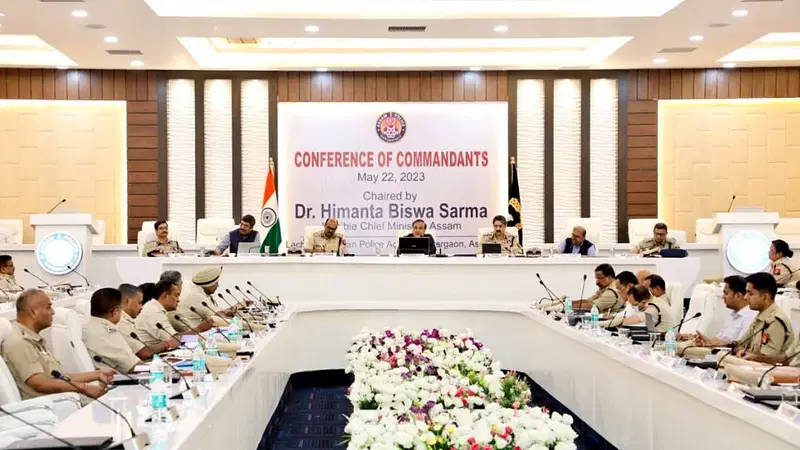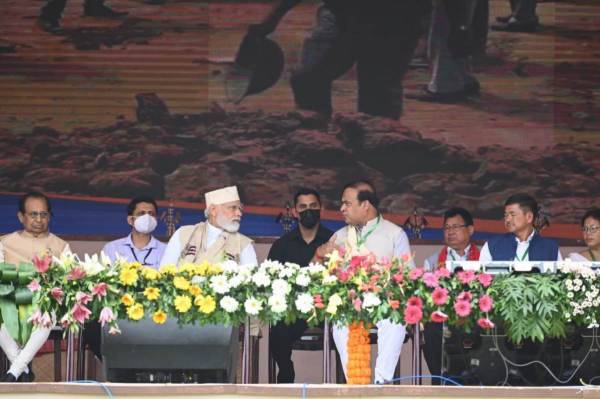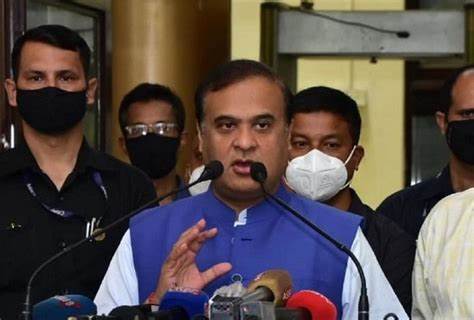New Delhi: During his address at the Commandants Conference, Sarma expressed the objective of the complete withdrawal of the Armed Forces Special Power Act (AFSPA) from the state of Assam by the conclusion of the year 2024.
On Monday, Chief Minister Himanta Biswa Sarma of Assam declared his goal of completely removing the contentious Armed Forces Special Powers Act (AFSPA) from the state by the conclusion of this year. “This step aims to facilitate a smoother integration between the Central Armed Police Forces (CAPFs) and the Assam Police Battalions. However, it is important to highlight that the legal responsibility to ensure the presence of CAPFs will continue to be upheld,” he emphasized.

Currently, the AFSPA Act of 1958 encompasses eight districts in Assam, granting certain powers to security forces operating in these areas. Under this act, security forces are authorized to conduct operations and make arrests without the requirement of a warrant. Additionally, the act provides immunity from arrest and prosecution to the security forces in the event of a fatal shooting.
The renewal of the Armed Forces (Special Powers) Act, 1958 (AFSPA) has been approved for a duration of six months, commencing on October 1st. This extension includes the maintenance of the ‘Disturbed Area’ classification for Tinsukia, Dibrugarh, Charaideo, Sivasagar, Jorhat, Golaghat, Karbi Anglong, and Dima Hasao districts, as well as the Lakhipur sub-division of Cachar in the Barak valley.
What is the rationale behind the CM of Assam’s decision to repeal the Armed Forces Special Powers Act (AFSPA)?
The decision to remove AFSPA typically involves various factors, including the prevailing security situation, the assessment of the local government, and the recommendations of security agencies. Governments may consider repealing AFSPA based on a range of factors, such as improvements in the security environment, reduced violence, or efforts to address human rights concerns associated with the law.
During a press conference commemorating the second anniversary of his government, the Chief Minister stated that the withdrawal of AFSPA from 60 percent of the state and the successful signing of peace agreements with various armed groups have fostered a climate of tranquility.
“He attributed the peace agreements with multiple armed groups and the successful resolution of boundary issues with Arunachal Pradesh and Meghalaya to the various initiatives undertaken by Prime Minister Narendra Modi,” he stated.

According to Sarma, the border conflict concerning Arunachal Pradesh has been fully resolved, while in the case of Meghalaya, progress has been made as an agreement has been reached in six out of the twelve disputed areas. Discussions for the remaining areas are scheduled to commence next month. He further mentioned that the Assam government has initiated measures to seek a peaceful resolution to the border disputes involving Mizoram and Nagaland.
Due to significant improvements in the situation within the West Karbi Anglong district, the government has decided to withdraw the contentious law.
Assam CM Himanta Biswa Sarma has taken numerous peaceful initiatives, leading to the decision to remove AFSPA (Armed Forces Special Powers Act) in Assam. This move signifies the government’s commitment to fostering a peaceful environment in the state.












